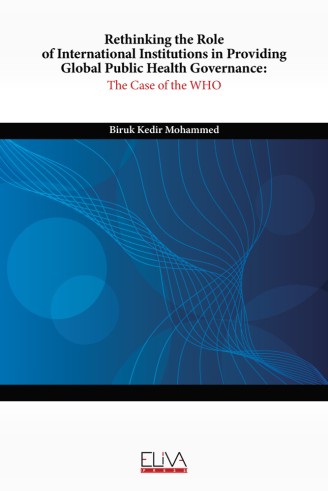
Rethinking the Role of International Institutions in Providing Global Public Health Governance: The Case of the WHO
$ 32.5
Description
The politics of global cooperation and global health governance is passing through complex developments. Particularly, the weak response to the COVID-19 pandemic in most of the developed states and the successful records of China’s efforts during the pandemic further arouses scholarly discussion on the politics of global cooperation. There are lots of perplexities, rising concerns and emerging challenges in this agenda. Major Powers and rising powers are battling against the existing institutional order. Thus, the purpose of this paper is to assess the dynamic of global governance with particular emphasis to global public health issue. It takes the case of the World Health Organization; how it managed its objectives, further scrutinize its success and predicaments of the organization in its seven decades journey. To measuring effectiveness of international institutions, the three thematic areas are achieving the obligations of their objectives, the degree of their compliance and the potential to enforce their decisions in to actions should be considered. The paper used qualitative research methods, the main data sources are from official statements, periodical reports, global health initiatives documents and other secondary data are included. There is a call for rethinking the role of international institutions. Generally, the existing system should reform itself and represent the current reality of the world and that certainly be achieved only through the political commitment of the great powers and leverage of the emerging powers.



